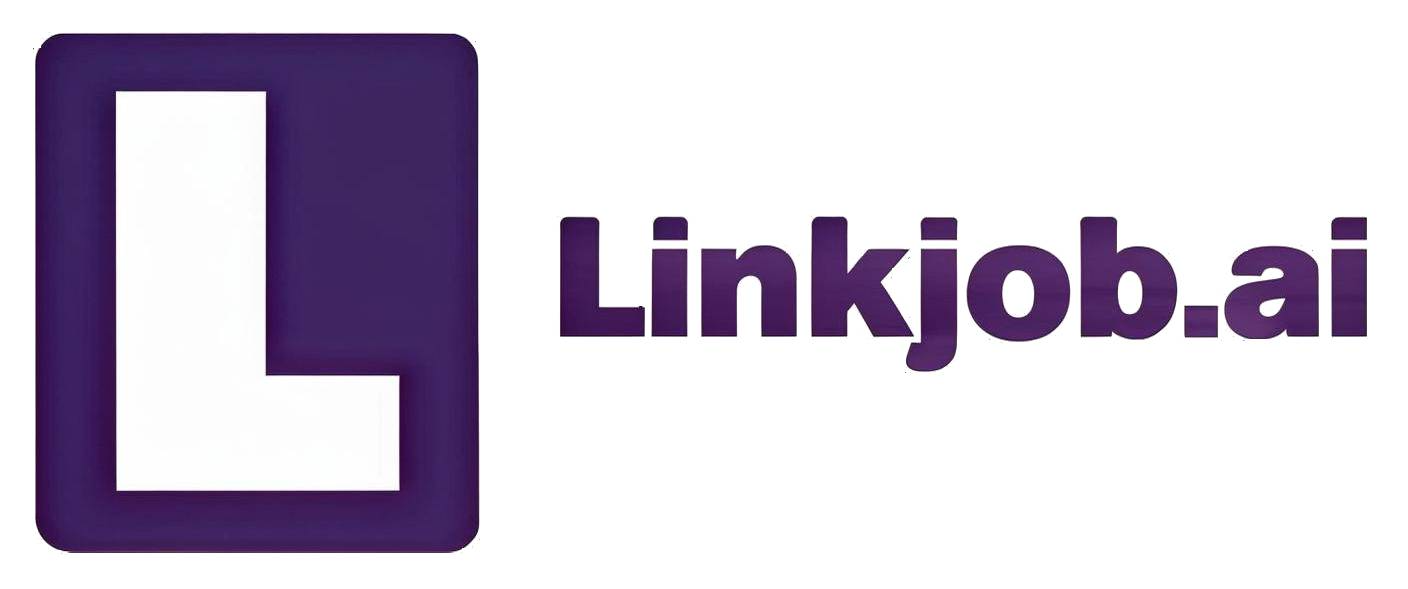Best Interview Coder Alternative for Coding Interview Copilot

Before my OpenAI interview, I spent some time looking for a good AI coding assistant. After digging around a bit, I narrowed it down to Linkjob AI and Interview Coder for my technical rounds.
I started with Interview Coder. They talk a lot about being "stealthy," so I set up a second laptop to check the screen share and see if it actually stayed hidden. But during the actual test, I discovered that two specific buttons would immediately reveal the AI’s presence when clicked. The pop-up boxes weren't hidden from the screen share at all. They took up a huge chunk of the screen and were super obvious. If I hadn't tested it beforehand, I definitely would've been caught cheating during the interview.
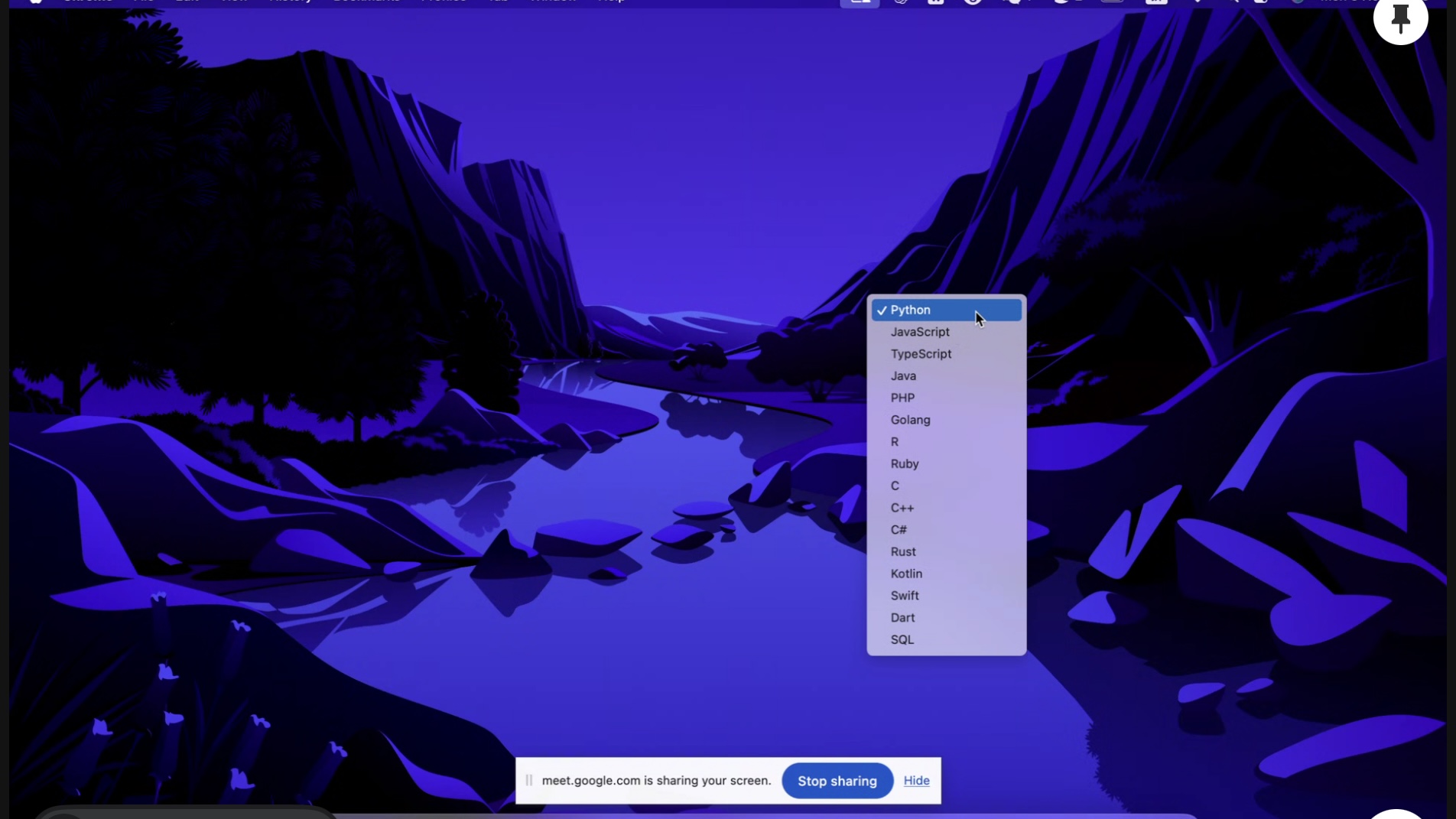
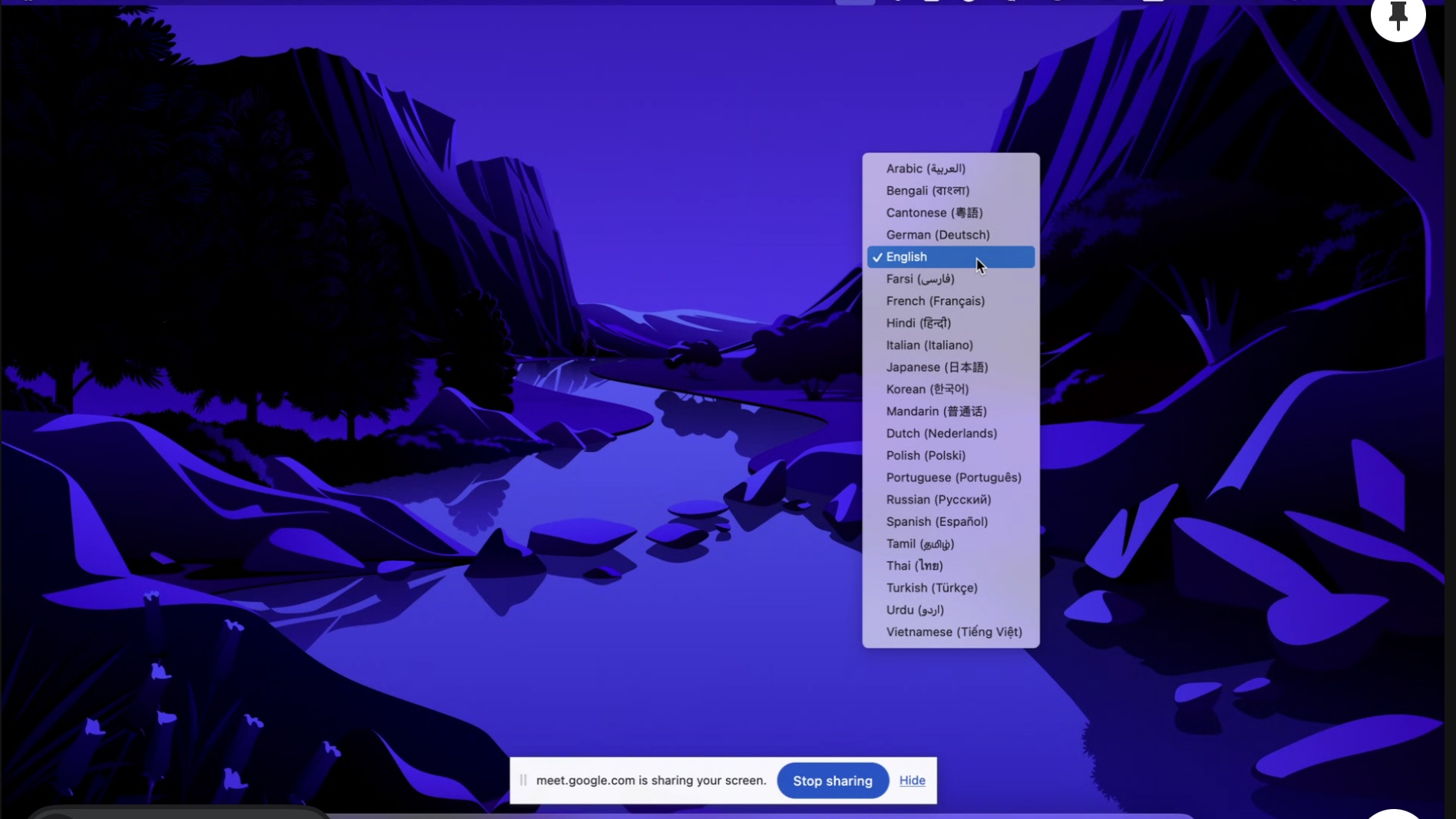
Then I gave Linkjob AI Interview copilot a shot. To me, the quality of the answers felt more or less the same as Interview Coder’s, and the features were pretty similar. And more importantly, I didn't catch any interface issues with Linkjob during my screen-sharing tests. Since the overall experience was largely the same but without the risk of getting exposed, I ended up going with Linkjob AI.
I am grateful to Linkjob AI for helping me pass my coding interview, which is why I accepted the invitation to write this review. In the following sections, I will share my hands-on experience, compare their features and stealth capabilities, and provide screenshots for further clarification.
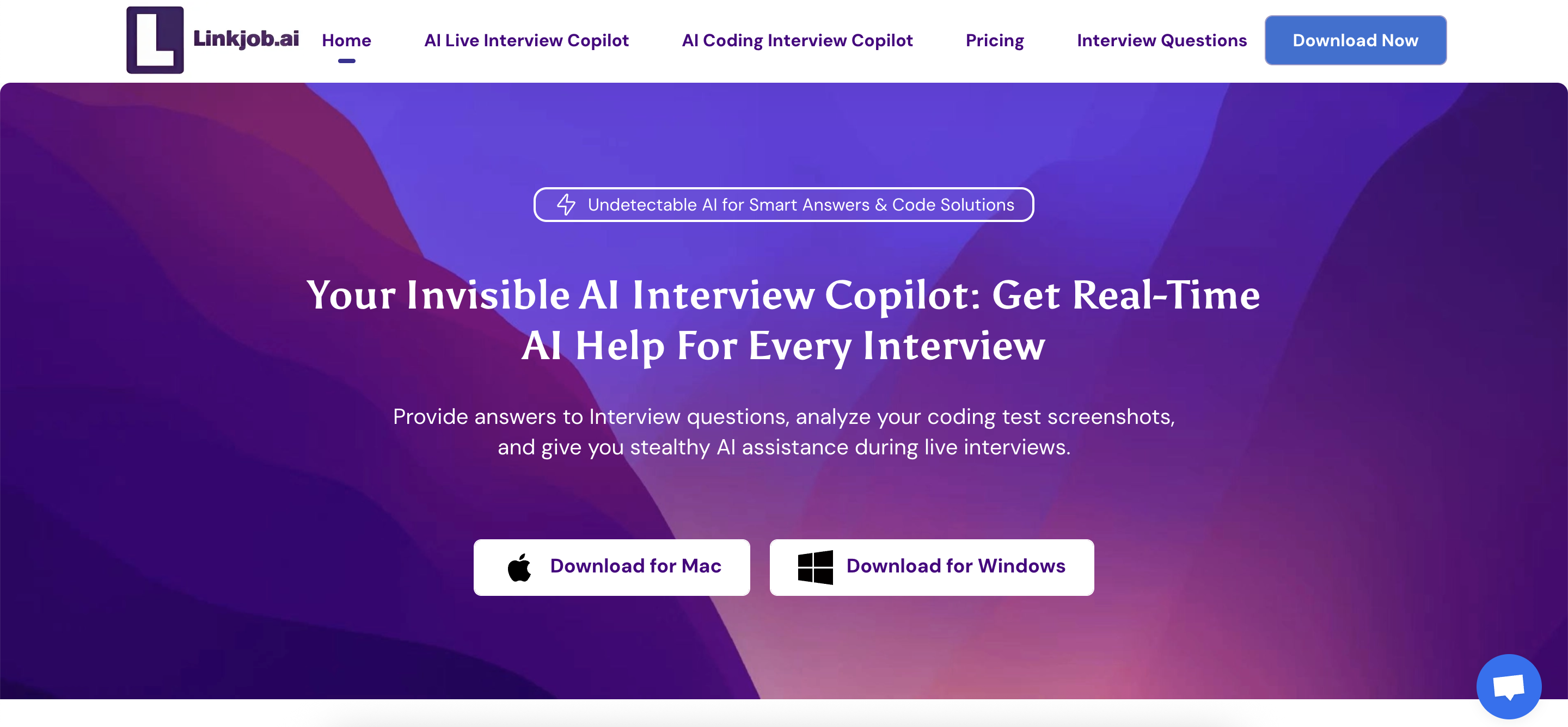
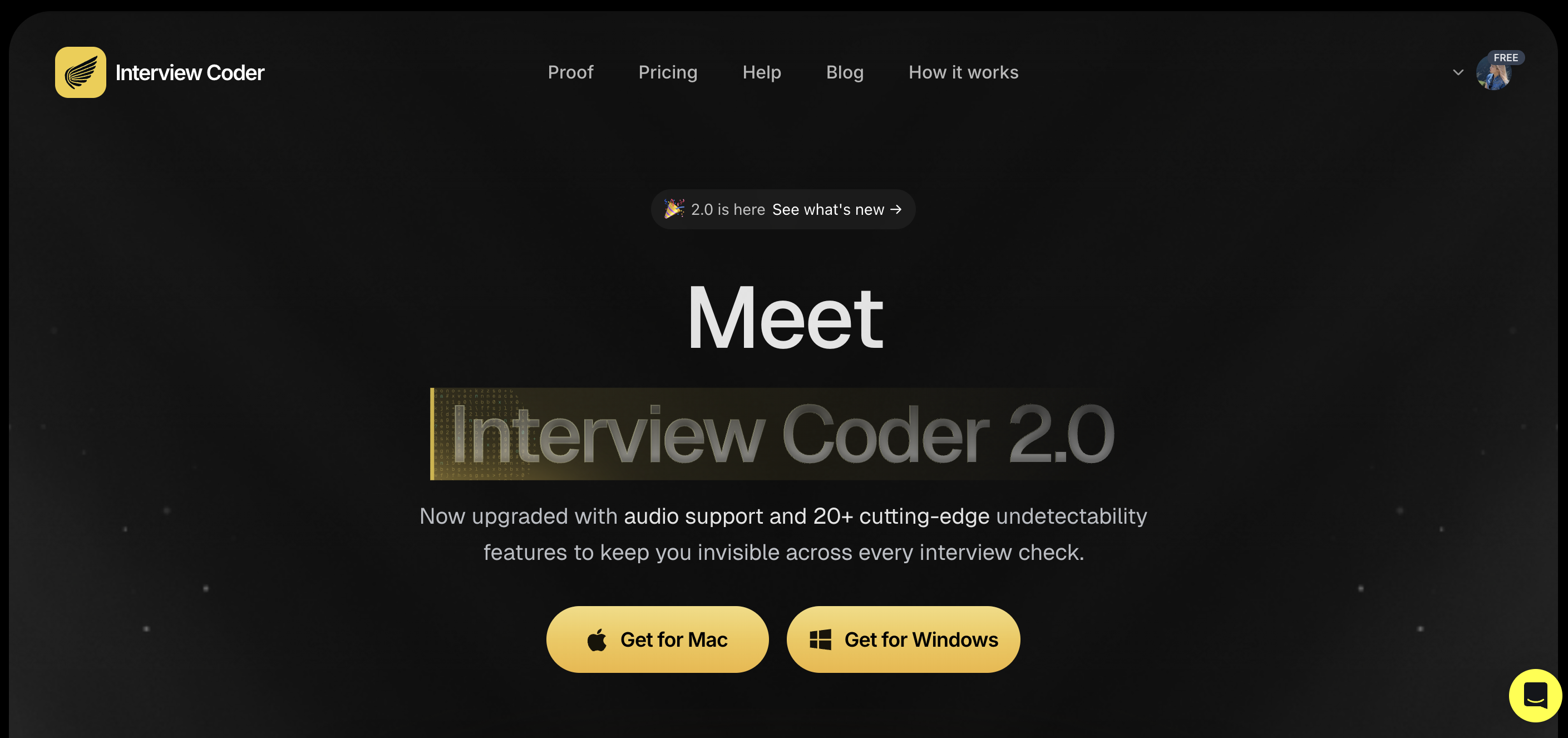
Comparison of the Coding Interview Copilot Features
Undetectability Comparison
First and foremost, my biggest concern was whether using AI during the interview could be detected. On this point, both products claim that the AI cannot be seen by the interviewer. Below are their respective explanations regarding their stealth features:
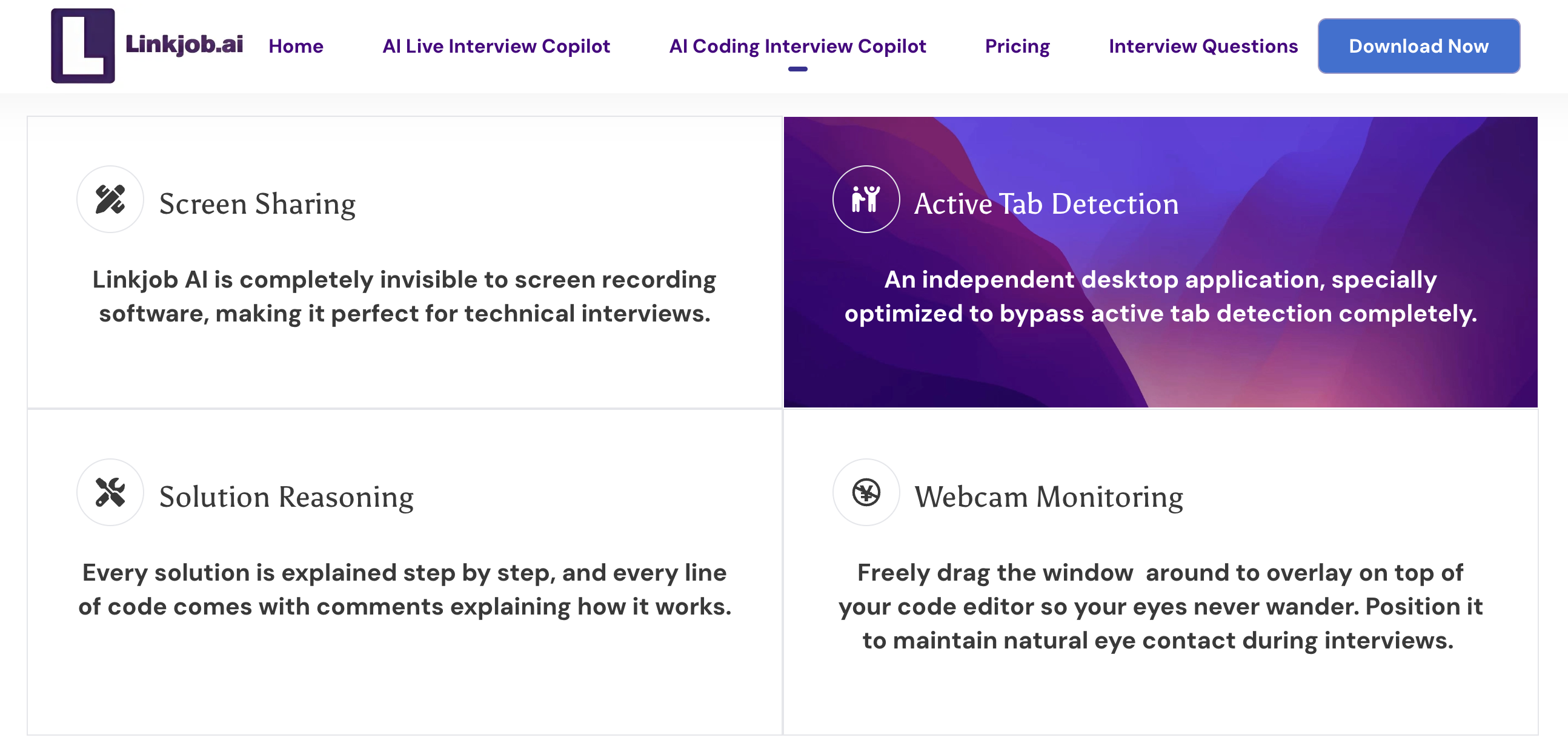
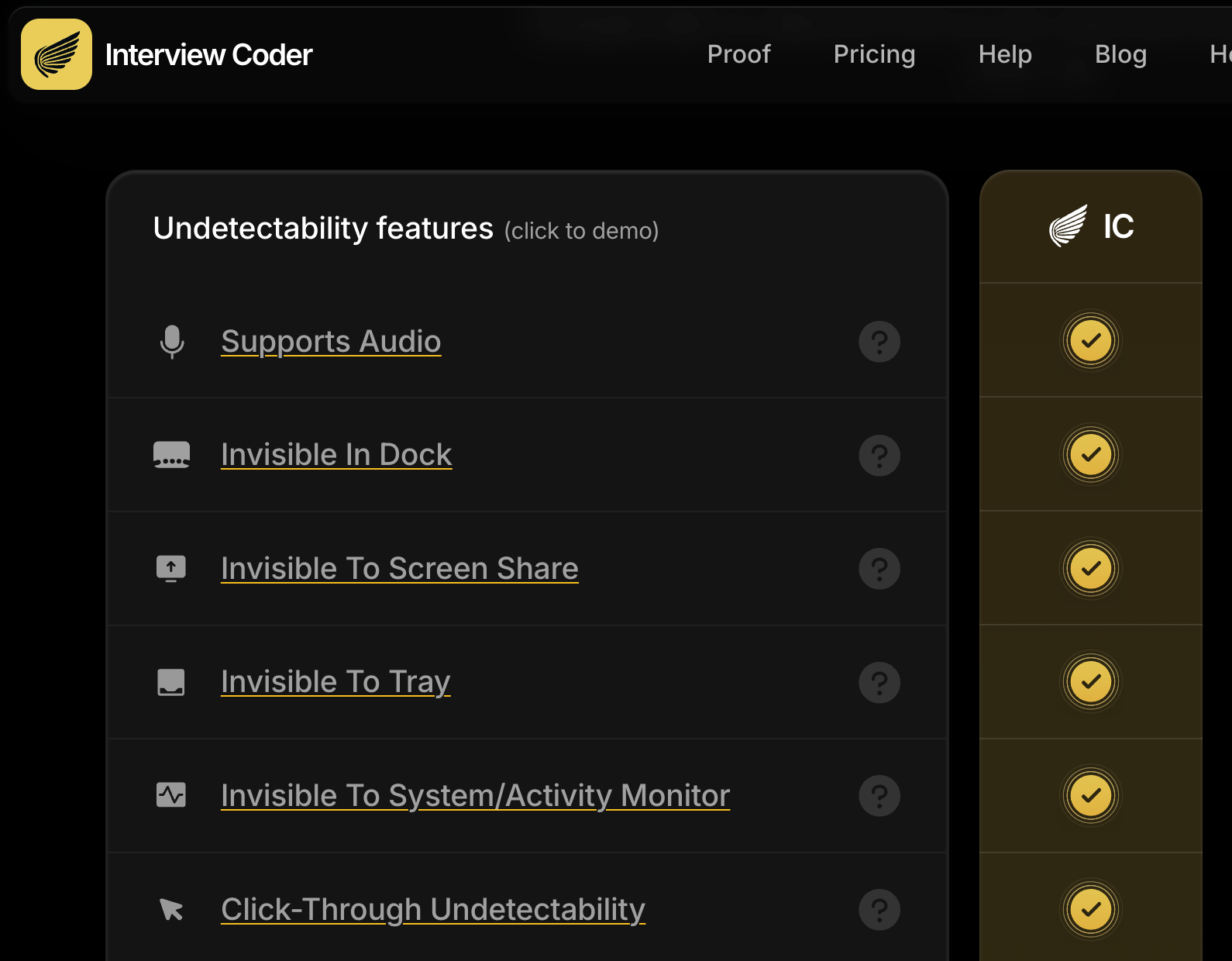
Both products have really strong stealth features. They use system-level integration to remain undetectable, displaying a always-on-top, transparent floating window only on my physical screen.
Based on my tests, they stay invisible even during a full screen share. Since both are desktop apps rather than browser-based web app, they won’t be flagged by active tab detection. They also handled the smaller details well by staying hidden from the menu bar, Dock, and process list, so they stay completely hidden.
Aside from those few bugs that could reveal its presence, I didn’t find any major issues with Interview Coder. But if you're planning to use a coding interview copilot, I’d strongly suggest doing a full run-through before your interview to make sure it stays invisible in every possible case.
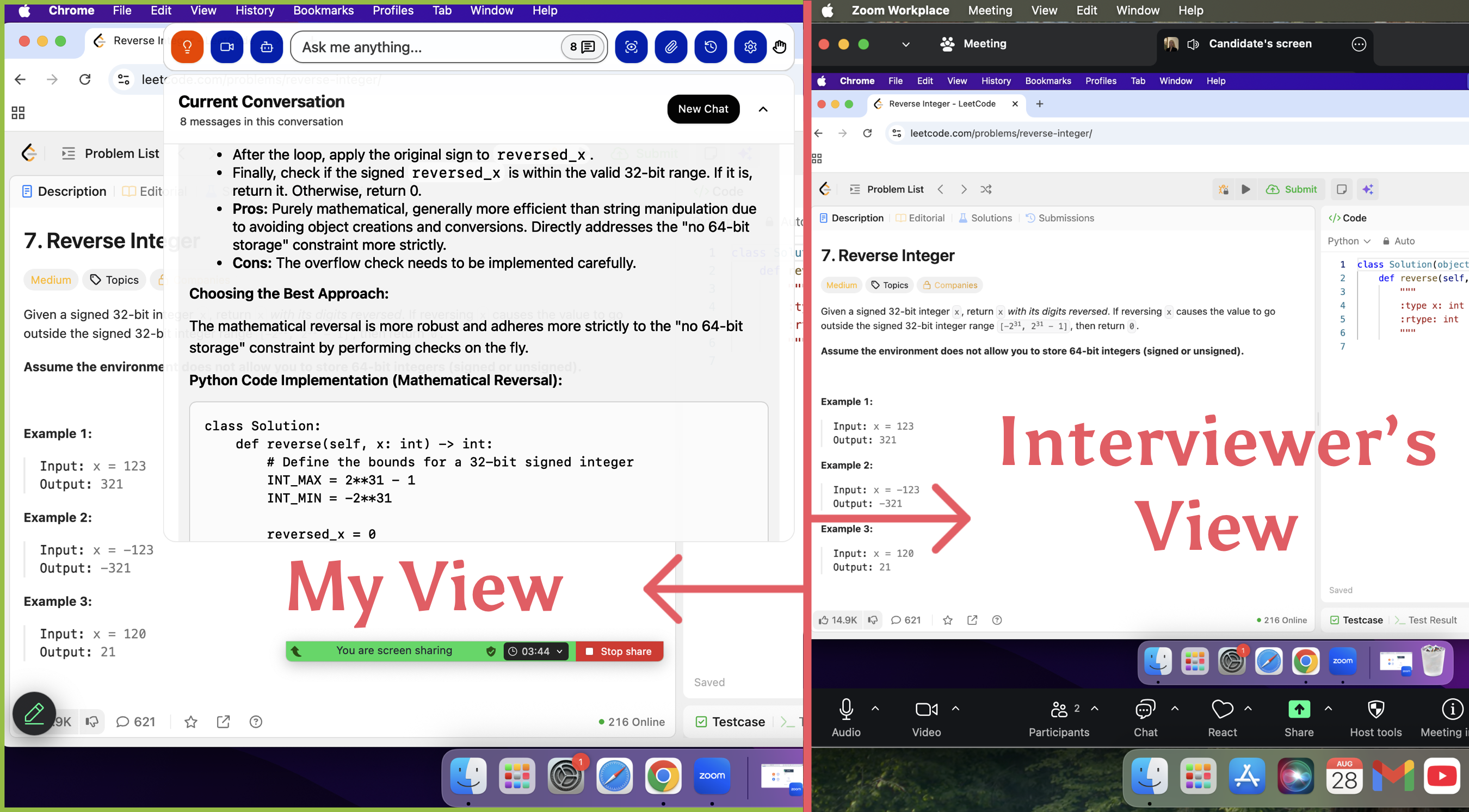
Platform Support Comparison
I also checked in advance which meeting platforms and coding interview platforms the two products support. Both products claim that they cannot be detected under any circumstances on any platform. A major plus for me was that they perform regular audits on their stealth capabilities, which I found to be a very reassuring point:
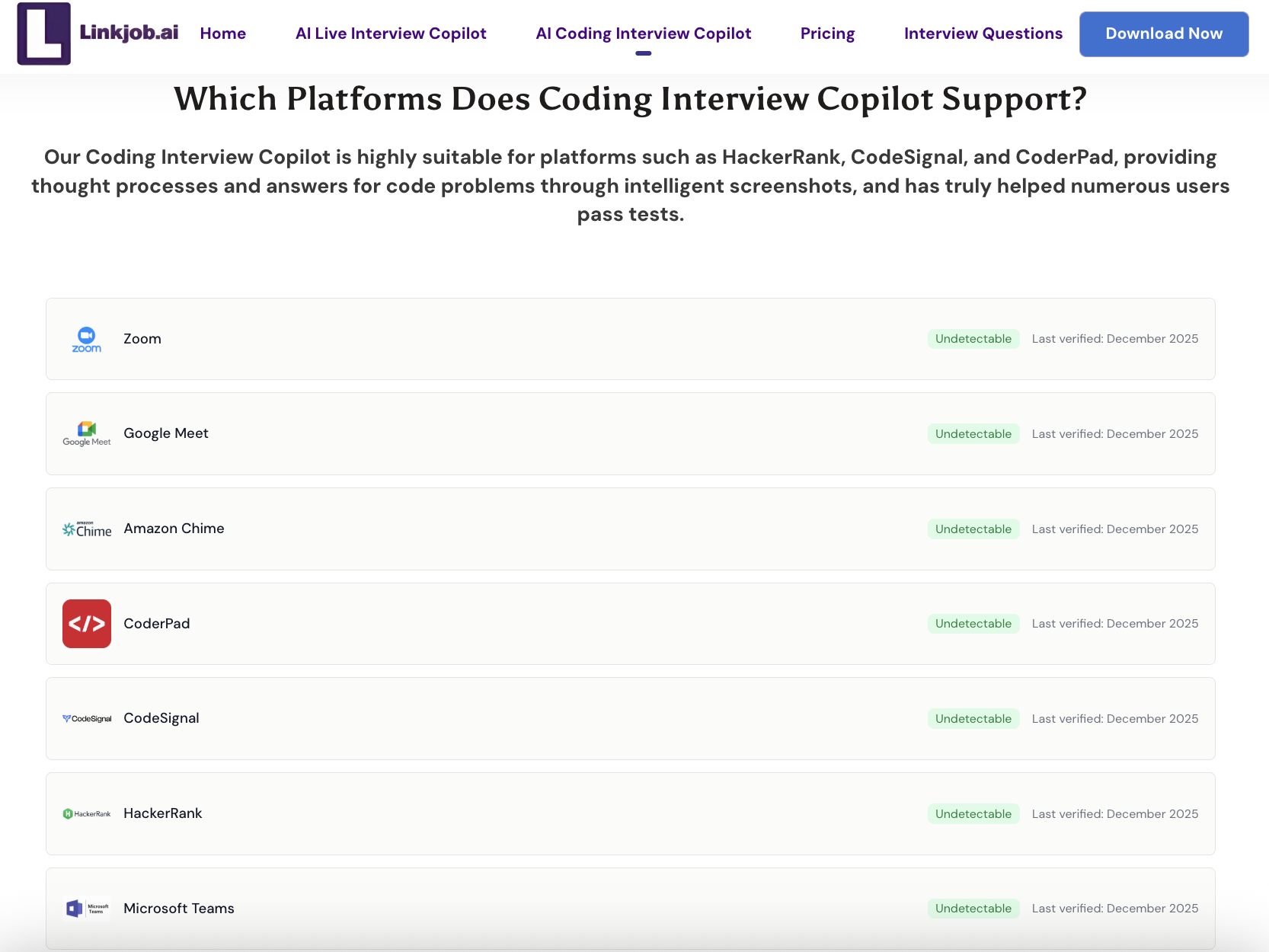
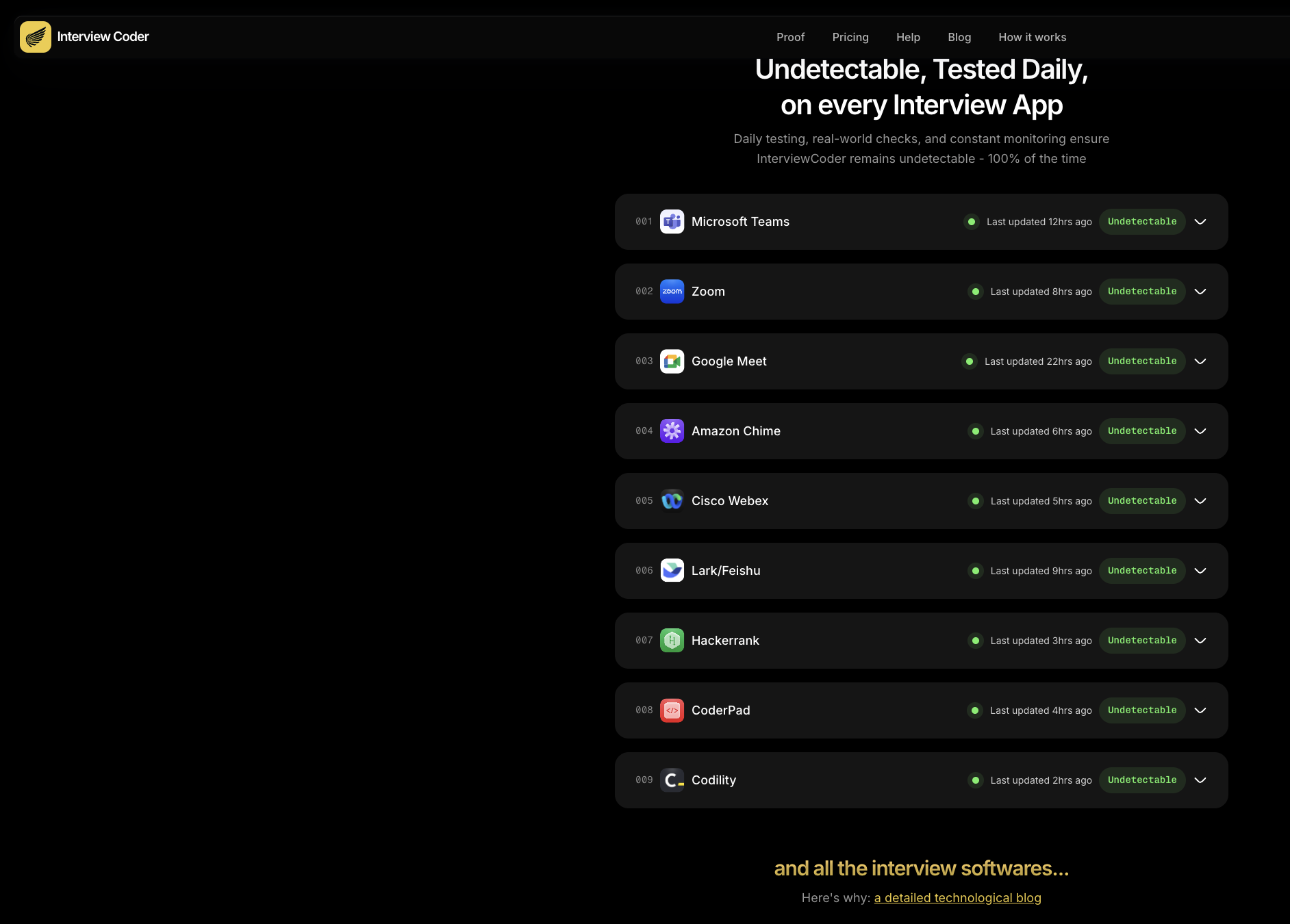
Live Screenshot
This feature is for taking screenshots. Both products support using undetectable global hotkeys to take screenshots. Linkjob AI's coding interview copilot can process multiple screenshots at the same time. This way, if the problem prompt is long, I can take several screenshots.
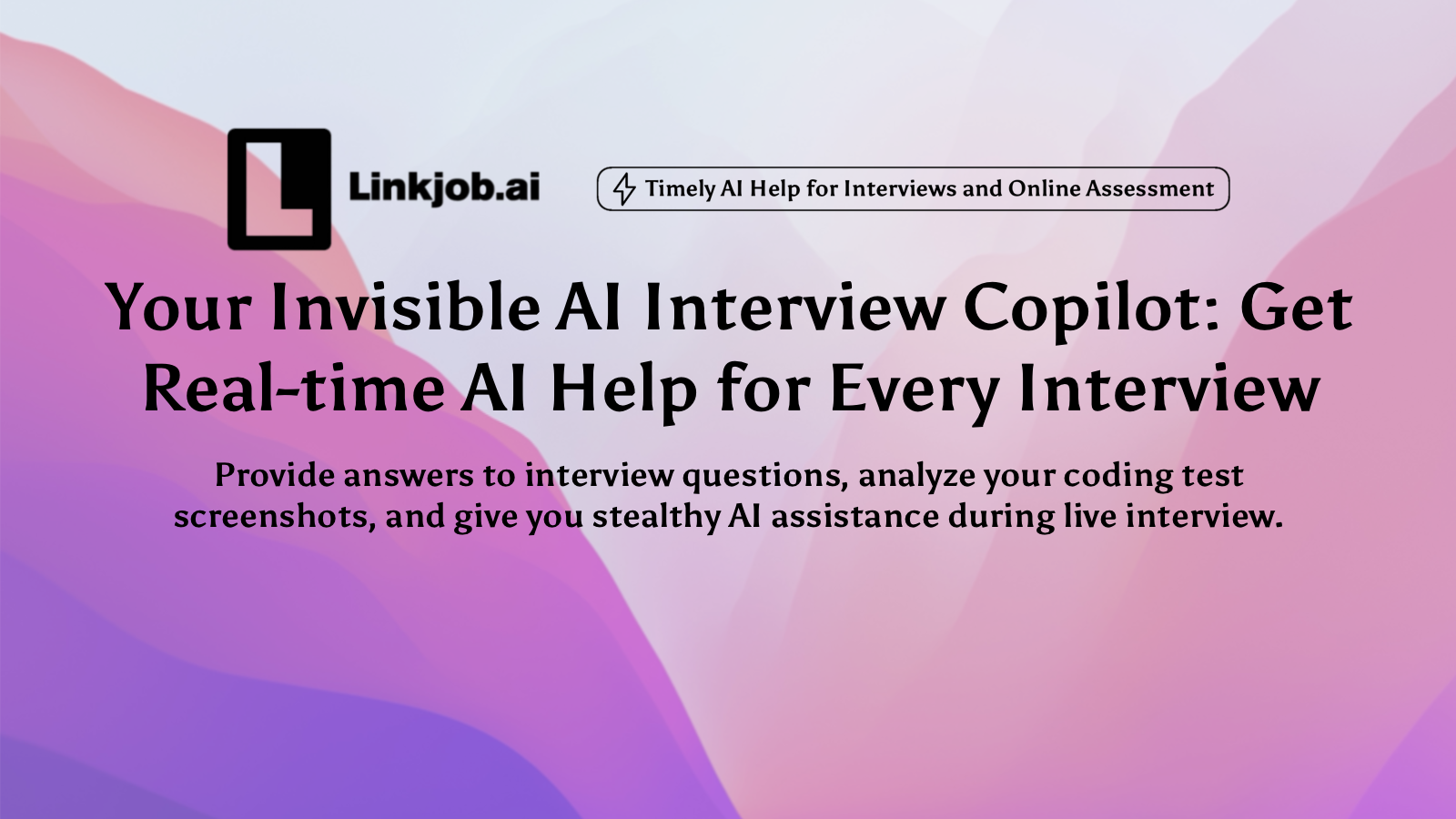
Conversation with Interviewers
When talking with an interviewer, Interview Coder requires me to manually click buttons like “Start Interview,” “Pause,” and “Finish.” If I don’t press them at the right moment, the AI might miss part of the interviewer’s question, leading to incomplete or incorrect answers.
On the other hand, Linkjob AI can automatically detect sentence breaks and generate responses without any manual intervention. However, I noticed that the AI’s sentence break detection isn’t always precise in some cases. It sometimes treats two sentences as one, and other times splits a single sentence into two. In those cases, I have to look through the AI’s response history to find the answer.
To be fair, neither product is 100% perfect at recognizing sentences. If you want to use an AI coding interview copilot to answer follow-up questions in a coding interview, you can choose a product whose way of recognizing sentences fits your habits better. For me, I still feel automatic recognition is more convenient because it doesn't distract me as much.
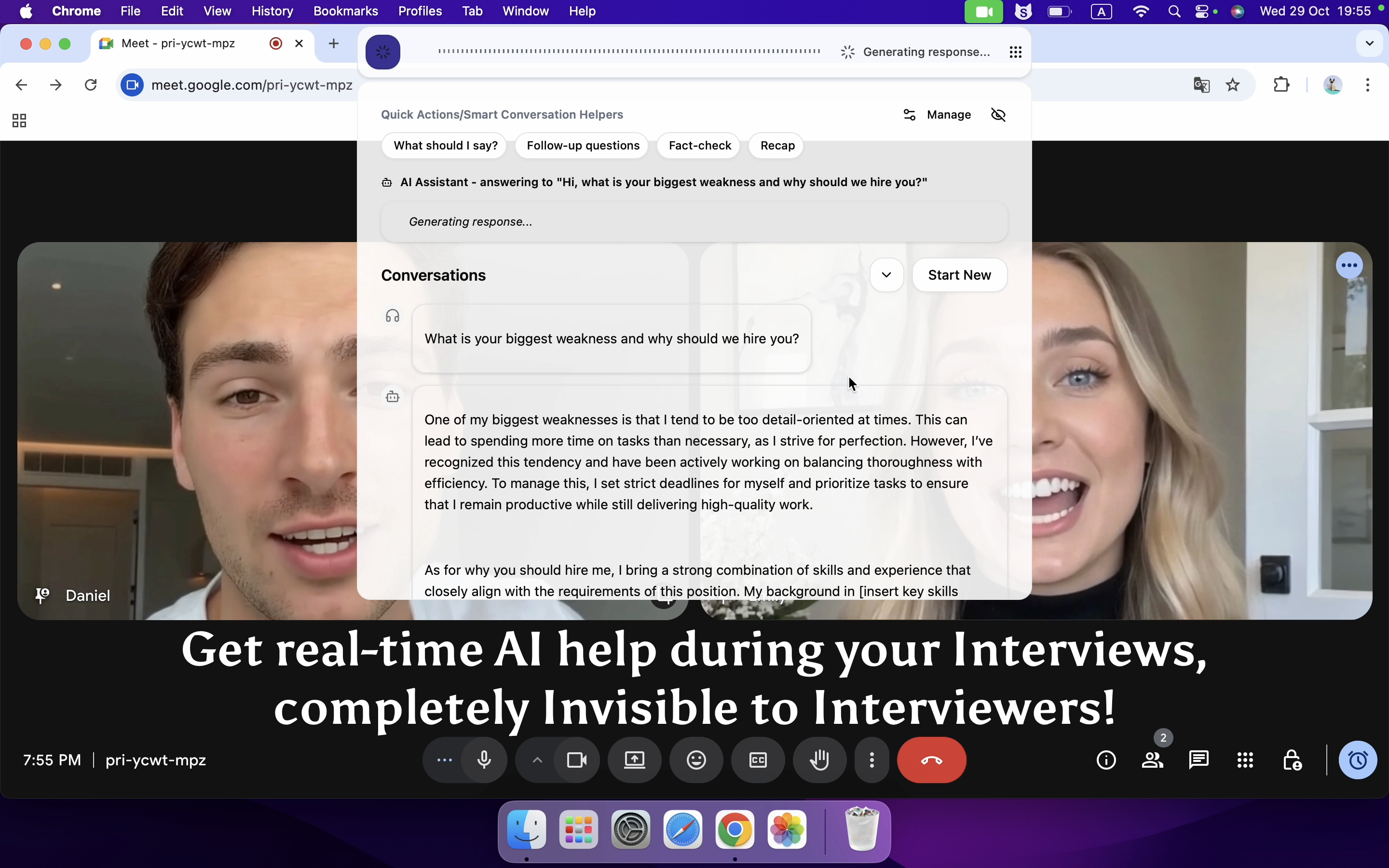
Personalization
Interview Coder only asks for my position and years of experience the first time I open the software after installation, and the options are quite limited. For instance, I could only select a broad category such as Software Engineer, 3–5 years.
Linkjob AI allows full customization directly via the “Settings” button. I can set prompts to control how the AI answers questions and follow-ups from the interviewer, choose the programming language for coding problems, and structure its explanations. I can also upload my resume and details about the company and position I’m applying for, which helps the AI generate more personalized and relevant responses.
Available AI Models
Interview Coder does not specify which AI model it uses to generate responses.
Linkjob AI provides 126 different AI models for me to choose from. This means I can take full advantage of each model's strengths and pick the one that best fits my interview needs. For example, if I plan to use it in a coding interview, I will choose an AI model with strong programming capabilities to assist me. If I need to use it in other interview stages, I will switch to a different AI model.
Price Comparison
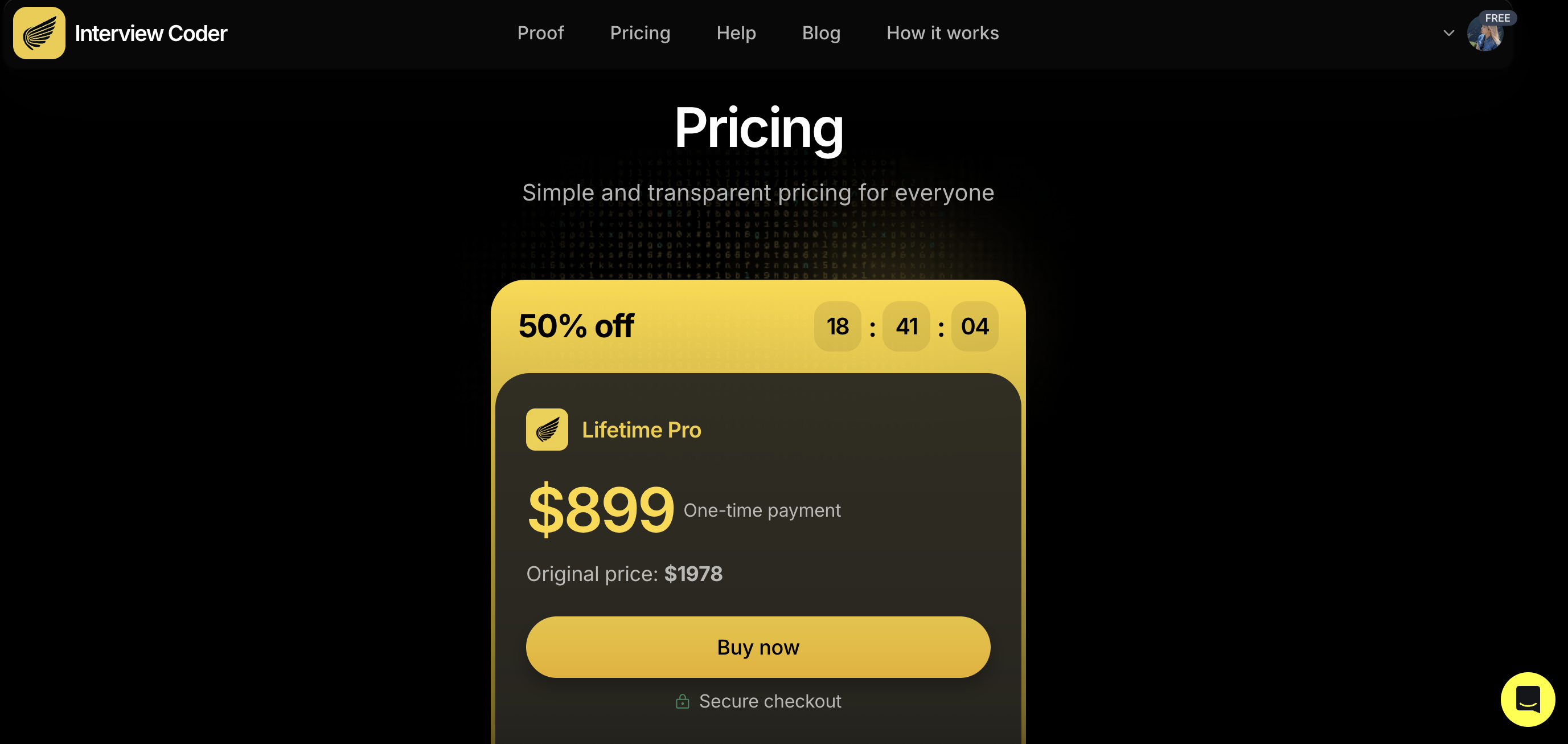
Interview Coder only offers a one-time payment of $899. All features are unlocked after payment.
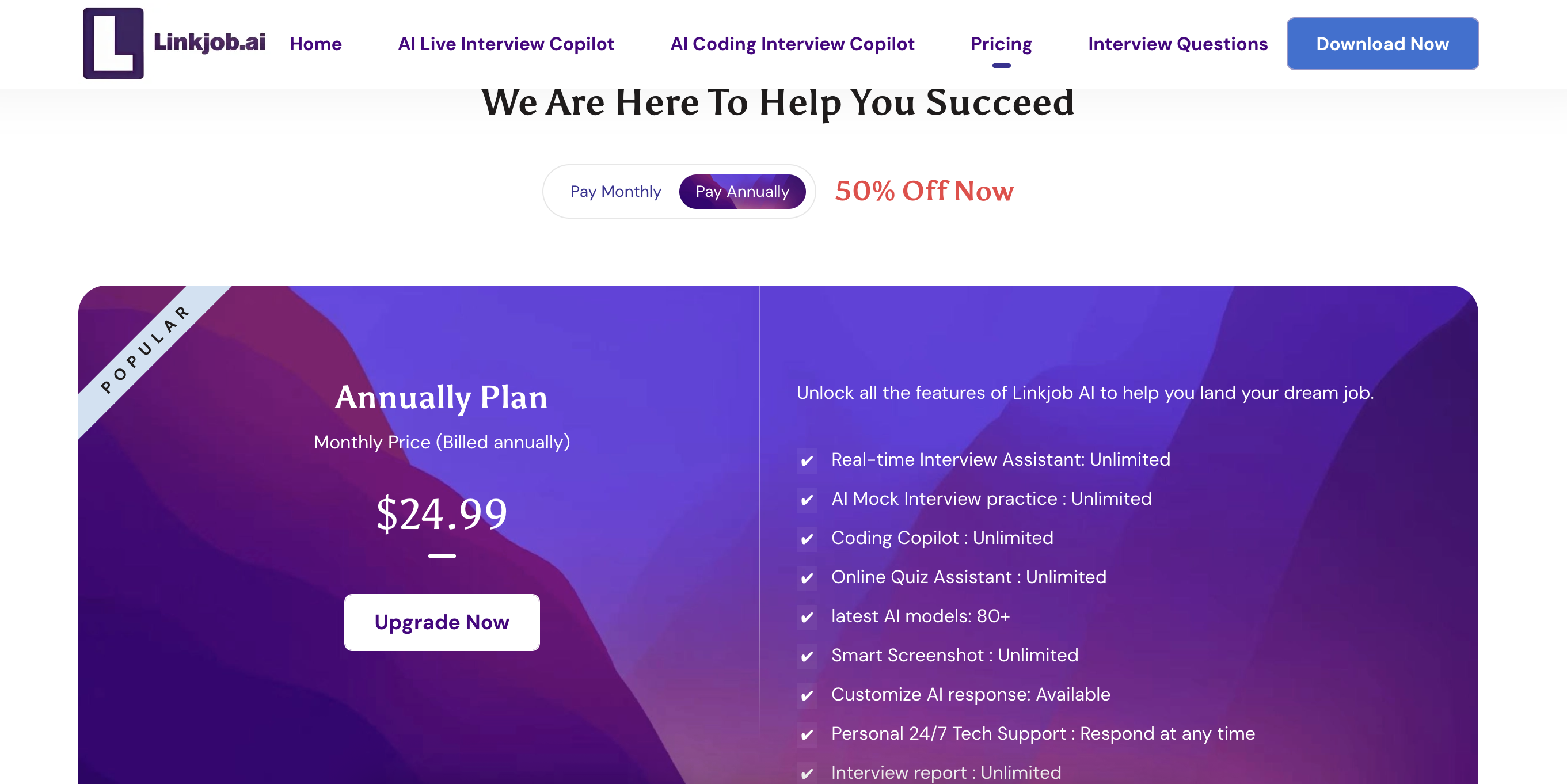
Linkjob AI, on the other hand, offers multiple pricing options:
Free trial | 0$ (20 min. All features of the paid subscription can be tried, but cannot choose AI models during the trial period.) |
Annually Plan | 24.99$ / month |
Quarterly Plan | 34.99 / month |
Monthly Plan | 49.99 / month |
I then chose the one that best fit my interview schedule. After subscribing, I was able to use all the features without any limits throughout the subscription period.
User Experience
Function Implementation
Nearly all features of Interview Coder rely on keyboard shortcuts (e.g., Command+H, Command+B, Command+G, etc.). Using a mouse could risk exposure, as I mentioned at the beginning.
Similarly, all features of Linkjob AI can be used via keyboard shortcuts. They also support clicking. However, if you want to use clicks during an interview, you need to change the cursor visibility from "auto" to "invisible" in the settings beforehand, so that the interaction between the mouse and the coding interview copilot won't be detected.
Usability
Unlike Linkjob AI, Interview Coder does not support viewing chat history. Therefore, I’m not sure if it can generate answers based on context.
Furthermore, the lack of chat history means if the initial response isn't great, I have no way to refine or correct it, since there’s no ongoing dialogue to build upon.
I believe a chat history feature would be very useful. Since the transparent floating window is already undetectable, chatting with the AI is also invisible to interviewer. This allows me to correct its responses in real-time, which is much more effective than simply regenerating a new answer.
Interface
Both products have a clean and simple interface. Additionally, the command bars of both products can be moved freely. However, while Linkjob AI’s answer window can be collapsed or expanded at will, Interview Coder’s window cannot be collapsed.
FAQ
How does Linkjob AI compare to Interview Coder for live coding interview support?
Linkjob AI generates answers a bit faster, and in addition to providing complete code solutions, it also offers the problem-solving approach.
Interview Coder also provides full code solutions and highlights key parts of the generated answers.
Besides coding interviews, can I use Linkjob AI and Interview Coder for other types of interview as well?
Yes, you can. They are not limited to just coding interviews. As undetectable AI interview assistants, they can also be used in other types of interviews, such as behavioral interviews and more.
See Also
Why I Ditched Cluely AI :My Honest Take on the Best Cluely AI Alternatives That Actually Work
Top 7 Alternatives to Final Round AI I Tried and Recommend
I have tested 20+ Lockedin AI Alternatives and Here are my top 5 picks

